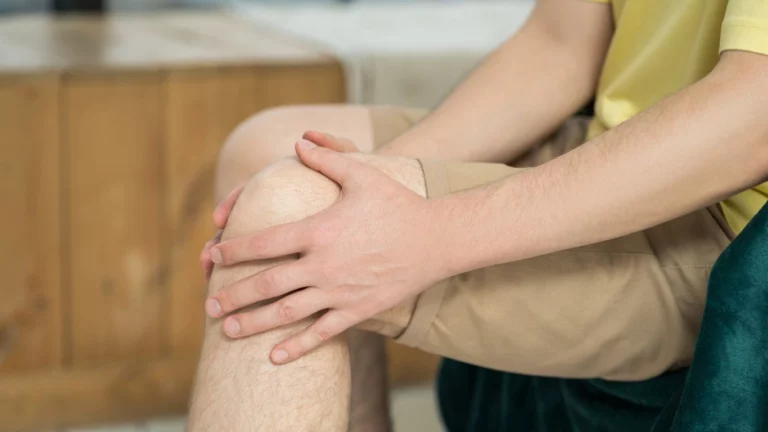Rheumatoid Arthritis and Stress Reduction Techniques: A Guide to Managing Your Symptoms
Managing rheumatoid arthritis (RA) can be tough, and stress can make everything feel a whole lot harder. In this guide, we’ll walk through how stress impacts RA and explore some practical ways to reduce stress to help manage your symptoms.

Rheumatoid arthritis (RA) is an autoimmune condition that causes inflammation in the joints, leading to pain, swelling, and stiffness. If you’ve been diagnosed with RA, you already know how challenging it can be to handle day-to-day activities. But did you know that stress can make RA symptoms worse? Let’s dive into the connection between stress and rheumatoid arthritis, and talk about some ways to lower stress levels to help manage your symptoms more effectively.
How Stress Affects Rheumatoid Arthritis
When you’re stressed, your body releases stress hormones like cortisol. While cortisol can be helpful in short bursts (for example, if you’re in a dangerous situation), prolonged high levels can lead to increased inflammation, which is a big issue for people with RA. Inflammation is what causes pain and stiffness in your joints, so when stress triggers more inflammation, your RA symptoms can flare up.
Not only that, but stress can also make it harder to stick to healthy habits. When you’re feeling overwhelmed or anxious, you might skip your exercise routine, forget to eat properly, or neglect your medication—all of which can make managing RA more difficult. So, managing stress isn’t just a “nice-to-have”—it’s an essential part of RA management.

Effective Stress Reduction Techniques for Rheumatoid Arthritis
Now, let’s look at some proven stress-reducing techniques that could make a big difference in how you feel. These strategies are simple, but they can really help in managing your stress levels, which in turn can lead to better RA symptom control.
1. Mindfulness and Meditation
Mindfulness involves staying present and aware of your thoughts and feelings without judgment. Practicing mindfulness can help break the cycle of stress and negative thinking, which is really helpful for people with RA.
Meditation is another powerful tool in this realm. A regular meditation practice helps calm the nervous system and can reduce overall stress levels. Even just 10–15 minutes of deep breathing or guided meditation each day can help. There are tons of apps and videos out there to get you started if you’re new to it.
Real-life tip: Set aside a quiet space for your mindfulness practice—maybe try doing it first thing in the morning to set a calm tone for the day.
2. Gentle Exercise
Exercise is a natural stress reliever, but if you have RA, you might be wondering what kind of exercise is okay. The good news is that low-impact activities like swimming, walking, or yoga can help reduce stress while being gentle on your joints.
Exercise releases endorphins, which are natural painkillers and mood boosters. Even if you can only manage light movement, it’s better than nothing. Exercise can also help you maintain a healthy weight, which is important for joint health.
Real-life tip: Yoga is especially great for stress reduction. It’s not just about flexibility—it helps calm the mind and promote relaxation.
3. Deep Breathing Exercises
Deep breathing exercises are one of the simplest ways to reduce stress, and you can do them anywhere. The idea is to slow your breathing down, take deep breaths in through your nose, hold for a few seconds, and then exhale slowly through your mouth. This activates the body’s relaxation response, reducing the physical symptoms of stress.
This technique can be used anytime you’re feeling overwhelmed, anxious, or even in pain. It’s an easy way to break the stress cycle before it gets too overwhelming.
Real-life tip: Try breathing exercises before bed to improve your sleep quality—less stress, more rest!
4. Get Enough Sleep
Chronic stress can negatively impact your sleep, and when you have RA, poor sleep can worsen inflammation and pain. It’s a vicious cycle. So, focusing on improving your sleep habits is a key part of managing both stress and RA.
Some ways to improve sleep include creating a relaxing bedtime routine, sticking to a regular sleep schedule, and keeping your bedroom cool and dark. Avoid caffeine and electronics before bed, as they can interfere with your ability to fall asleep.
Real-life tip: Try a warm bath with some calming scents (lavender, chamomile) to relax your body and mind before bed.

5. Talk It Out
Don’t bottle up your feelings. Talking to someone you trust can do wonders for your stress levels. Whether it’s a close friend, family member, or a therapist, getting things off your chest can relieve emotional tension and help you cope with the ups and downs of living with RA.
Sometimes, just knowing someone is there to listen can make all the difference. Plus, discussing your struggles with a professional can help you develop coping strategies and build resilience over time.
Real-life tip: Join an online or in-person support group for people with RA—connecting with others who understand what you’re going through can be incredibly reassuring.
Why It’s Important to Focus on Stress Reduction
Incorporating stress reduction techniques into your daily routine can make a huge difference in how you feel day-to-day. Not only will these practices help lower inflammation and reduce pain, but they’ll also boost your mood and give you the energy you need to stay active and manage your condition. When stress is kept under control, it’s easier to focus on the things that matter most—like your treatment plan, exercise routine, and overall well-being.
Conclusion
Managing rheumatoid arthritis is a marathon, not a sprint. Stress is a natural part of life, but when it comes to RA, it’s important to find ways to reduce it so it doesn’t worsen your symptoms. By incorporating stress reduction techniques like mindfulness, meditation, gentle exercise, deep breathing, and getting enough sleep, you can help manage both your stress levels and your RA symptoms more effectively. The next time you’re feeling overwhelmed, try one of these strategies and see how much better you feel. Stress may never fully disappear, but with the right techniques, you can definitely take back some control and feel more balanced.

Appendices
Frequently Asked Questions (FAQs)
- How does stress worsen rheumatoid arthritis symptoms?
Stress triggers the release of cortisol, which can increase inflammation in the body and worsen RA symptoms like pain and stiffness.
- Can meditation really help reduce RA symptoms?
Yes, meditation helps lower stress levels, which can reduce inflammation and improve pain management for RA patients.
- Is exercise safe for people with rheumatoid arthritis?
Low-impact exercises like swimming, yoga, or walking are great for reducing stress and improving joint flexibility without putting too much strain on the body.
- How much sleep should I be getting if I have RA?
Aim for 7-9 hours of quality sleep each night. Poor sleep can exacerbate pain and inflammation in RA patients.
- Can talking to a therapist help with RA stress?
Absolutely! Therapy provides a safe space to talk about your feelings and learn strategies to cope with stress, which can ultimately help with RA management.
References
- American College of Rheumatology. (2024). “The Link Between Stress and Rheumatoid Arthritis.” Read Article
- Smith, J., & Thompson, L. (2023). “Managing Rheumatoid Arthritis with Mindfulness.” Journal of Pain Management, 40(3), 123-130. Read Article
- National Institutes of Health (NIH). (2025). “Effective Stress Reduction for Autoimmune Conditions.” NIH Health Report, 35(1), 20-25. Read Article
Disclaimer
This article is for informational purposes only and is not intended to provide medical advice. Always consult your healthcare provider or rheumatologist before making changes to your treatment plan or stress management routine.














